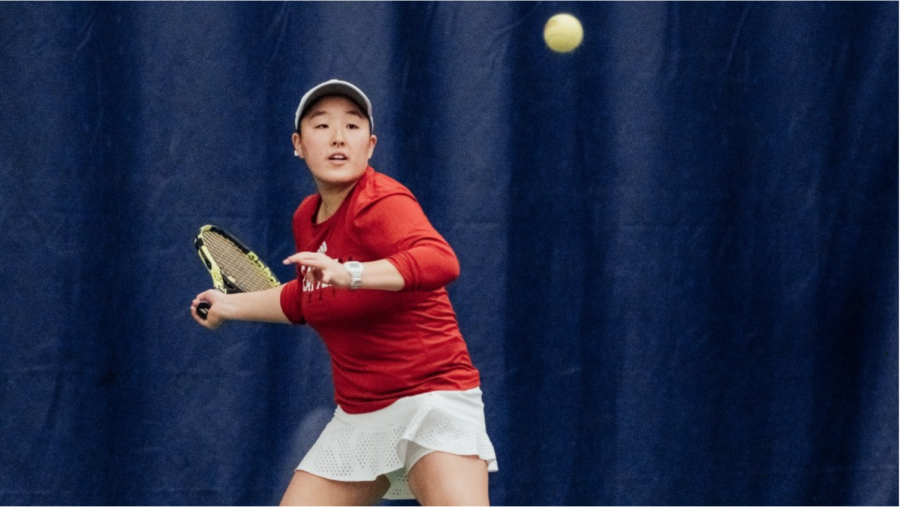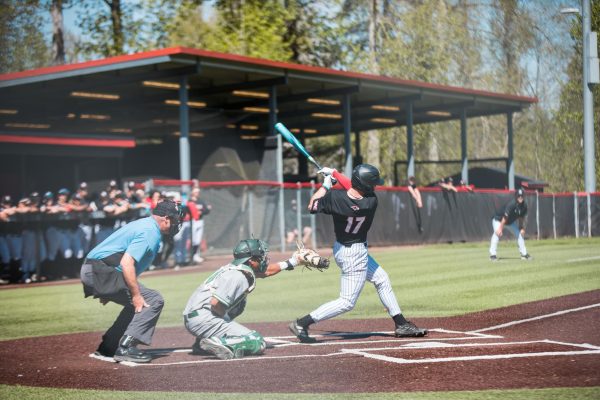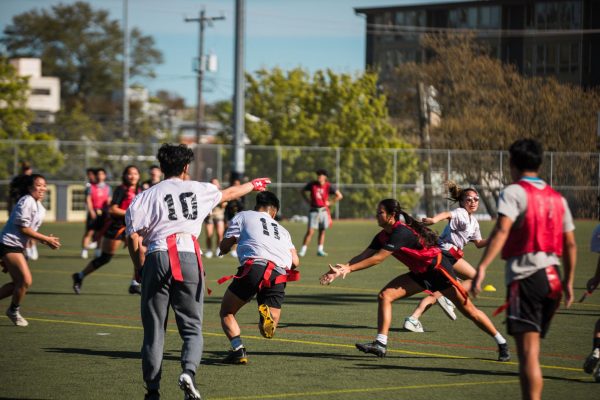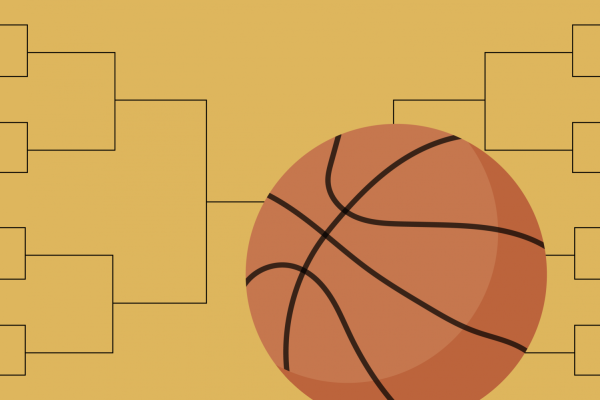TOS: Kyra Jung taking advantage of time away from the court
Kyra Jung is currently a junior psychology major on Seattle University’s Women’s Tennis team. Currently living in their hometown of Columbus, Ohio, Jung is passing their time playing Animal Crossing, keeping in touch with teammates and looking forward to returning to practices.
FD: How is your spring quarter going?
KJ: Ah, you know, it’s okay. Even though I don’t really get to see my teammates, we’re still trying to connect through Zoom calls, but it’s definitely a lot different having so much free time. Not having a set schedule gives a lot more time to procrastinate. A lot of us, including myself, are slacking a little bit. I’m glad that we got this break.
FD: You said that you moved back to Ohio. What’s it like in the state of Ohio right now?
KJ: I’m from Columbus—it’s different from being in the city of Seattle. In Seattle, I could go out and walk around and do stuff, but now I’m in the middle of nowhere. My closest friend is about a 30-minute drive away. I’ve been social distancing, and I haven’t really left the house that much. I’m trying to stay up to date on whatever is going on in Columbus, as things are starting to open up. But at the same time, I see hundreds of people on Twitter gathering and hanging out as soon as restaurants open up again—and without masks on. I’m like, ‘Hello, can you please not be like this?’ But yeah, I’ve been chilling at home and watching “Avatar: The Last Airbender.”
FD: How are your classes going? How was the transition to online classes for you?
KJ: As a psych major, I’m taking what are supposed to be the hardest classes for my major. It’s really interesting because they’re both very group-oriented classes, but at the same time, I’m glad that the professors are lenient. I feel like the transition has been pretty good for some of my classes.
FD: What have you been doing for self-care? Have you picked up any new hobbies during quarantine?
KJ: Animal Crossing. Of course I hopped on that bandwagon. I probably have over 300 hours of play—gotta get that five-star island. I’m trying to get into more self care, like journaling and getting back into art. I also just talk to people on FaceTime to try to stay connected.
FD: When did you find out that the tennis season was officially canceled and that you weren’t going to be playing any games? How did you feel when you heard that news?
KJ: I think for our season, because we were directly affected and being a spring sport, we were working with some people in administration. It is related directly to getting information about our conferences. We heard the school was banning everything besides essential travel, which included athletics, but I didn’t really understand that. I think the first place I saw the announcement that season was canceled or postponed was through the [Western Athletic Conference] Twitter.
FD: You said you’ve been trying to keep up with your teammates. Does your team have a set regimen that your coaches are telling you to use to keep up your skills? How are you staying healthy and maintaining a consistent workout routine?
FD: When we aren’t in season, the NCAA does not require us to practice or workout over eight hours a week. It’s interesting, because we don’t have a coach right now, but we have a workout plan that we can do if we are able to. However, a lot of us are limited because gyms aren’t open and we don’t have equipment.
FD: What are you missing most about the regular season and Seattle University in general?
KJ: We talked about this in one of my classes, but I think I miss the little things the most, like going to practice or having small talk or even just being able to sit next to someone and share an inside joke. Those little interactions that you don’t even realize, really just add onto my day.
As student-athletes and sports teams of all sizes continue to cope with the effects of COVID-19 and attempt to prepare for a future of athletics unbeknown at the moment, maintaining some sort of schedule and consistency in day-to-day life seems to be the key in moving forward and staying safe. And although Seattle U student-athletes are separated and confined to their respective homes, togetherness has never been more important than a time like now.







![The 2024 NBA Playoffs’ Best Moment May Be the First Round [Opinion]](https://seattlespectator.com/wp-content/uploads/2024/04/NBAPlayoffWeb-600x396.jpg)


